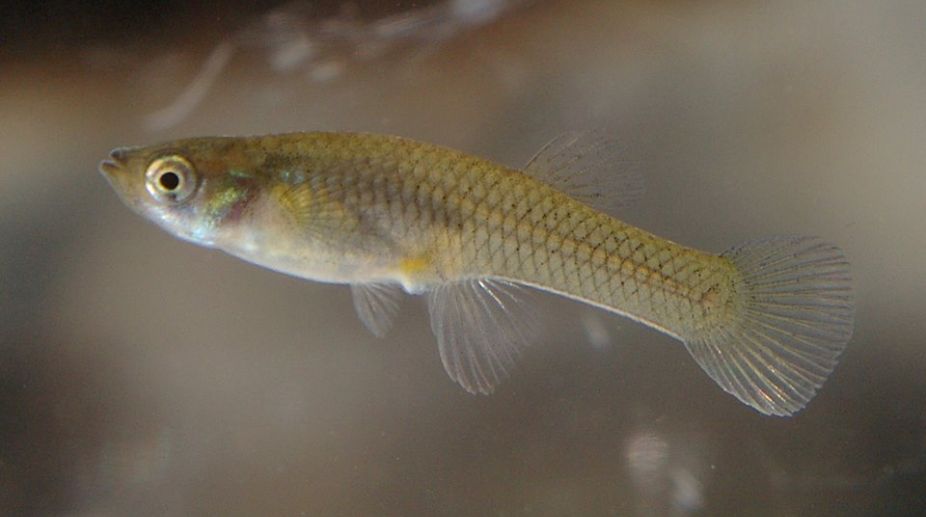Blue Whale washes ashore in Andhra Pradesh
A giant fish, said to be a Blue Whale, has washed ashore off Bay of Bengal in Andhra Pradesh’s Srikakulam district.

Gambusia fish (FACEBOOK)
The district authorities hope to combat malaria with “Lakshya” and “Gambusia”.While the former is a repellent applied to the mosquito nets, the latter is a fish, which feed on mosquitoes larvae.
Gambusia is being released in ponds and drains in large numbers, which is a kind of driver to control spread of malaria in both rural and urban areas. Mosquito nets are also being distributed.
The district malaria wing is breeding Gambusia fish in a concrete water tank and is distributing the fish to interested people who can use it in water bodies .
Advertisement
The fish will be released with the help of the municipal authorities in identified stagnant water bodies in all 26 wards besides distribution to 26 Primary Health Centres (CHCs) in rural areas in the district, said Dr Shasheekanta Sethi, District Malaria Officer. He said that the fishes have been released into wells and water bodies in some grampanchayats too.
On incidence of malaria in the district, he said 4,96589 blood samples were tested in which 27,666 cases were found positive with 22, 431 detected of Plasmodium Falciparum, two casualties took place last year.
The Anopheles Fluviatilis mosquito is the main vector for the Malaria in the hilly terrain of the deciduous forest tract of Similipal hills. The introduction of Artemisinin based combination Therapy for treatment distribution of Rapid Diagnostic Test (RDT) kits for detection and distribution of Long-Lasting Insecticidal Net (LLIN) in the district has been taken up which has allotted with single LLIN is 3,36,224 and large LLIN is 6,80,835 that have to be distributed since 19th August over 18 blocks and 378 SubCentres.
Most of the Malaria cases were detected from the periphery areas of Similipal forests. To prevent Malaria, the department has started Indoor Residual Spray (IRS) from Thursday (1st June) in 21 Community Health Centres.
The IRS drive has taken into the all tribal residential school after reopening of the schools. The initiative calls Durgama Anchalare Malaria Nirakaran (DAMAN) is the supplement to the routine Malaria control programmes in the inaccessible villages and hamlets of high endemic districts has started from the month.
Advertisement